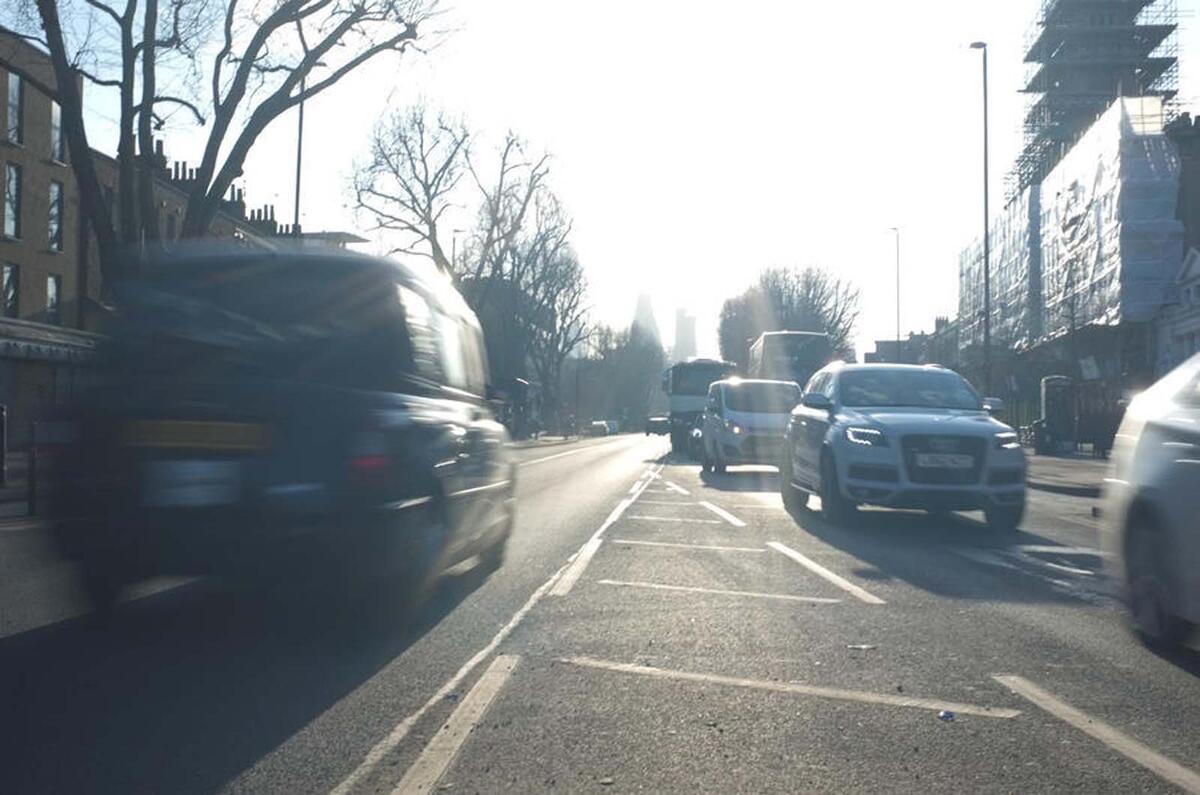The Government’s move to broaden its focus on air quality beyond the car industry has been welcomed, but senior figures including Jaguar Land Rover’s UK managing director, Jeremy Hicks, have cautioned that more clarity is required.
Diesel has sustained a period of attack instigated last summer by environment secretary Michael Gove and this is thought to be largely responsible for the 17% drop in diesel car registrations in 2017 and a decline of just over a third so far this year. This week, Gove revealed that the Government is looking at ways to reduce all forms of pollution as part of its clean air strategy, higlighting the effects of wood burners, coal-burning and ammonia from farms. Notably, he did not mention cars.
Defra launches car-friendly extension to air quality plan
“Frankly, there is so much confusion now created by the Government,” said Hicks. “Our own surveys suggest that people are asking if it is even okay to buy an internal combustion engine any more. The terminology is unclear — a lot of people don’t know if Euro 1 is better than Euro 6. The Government’s taxation policy is unclear. The uncertainty and ambiguity has caused untold confusion.
“Anyone who was thinking they could sort air quality out by demonising diesel was thinking in the same terms as someone who thinks they can solve alcoholism by banning beer. Cars are part of the problem, but they are far from being the only problem.”
Both Hicks and Society of Motor Manufacturers and Traders (SMMT) chief executive Mike Hawes highlighted the need for clarity in order to restore consumer confidence, especially from the mooted Road to Zero plan, which is rumoured to have the goal of ensuring all cars sold from 2040 will be able to drive 50 miles on pure electric power.
“Go too fast and neither the consumer nor the industry will go with you,” said Hawes. “Setting goals for 2040 is fine, but there is an element of crystal ball gazing to it. If Government picks a winning technology, then it is discounting alternatives. I certainly couldn’t tell you whether battery-electric will be the solution in 2040, or hydrogen or synthetic fuels or something else. I’d like to see a proposed solution that sets targets but which is technology neutral.”
Top 10 best electric hatchbacks
Hicks added: “Last year, electric cars accounted for less than 2% of the market. There is a long way to go until 2040 and we have to get there in a way that brings the consumer with us. We want to get there, too — as an individual, because I breathe the same air as everyone else, and as a company, because we see the societal benefits — but we have to apply the right debates. It’s not about mandating one technology; it’s about all sorts of things, from educating drivers to actually plug their cars in so they do run on electricity and cut emissions, to creating not just a charging infrastructure but one that charges at speeds that make electric cars practical.”





Join the debate
Add your comment
Diesel
The government seems to be realising that extra-urban high mileage diesel car use is better than petrol due to lower CO2 emissions.
Check out the use of diesel farms - banks of diesel powered generators, to boost supply to the National Grid when demand (including for electric cars) is high.
I think there is a problem with DPF technology - I would like to switch to a Renault 4x4 only sold in the UK with diesel engines (like almost all pickups) but owners report that with short journeys DPF blockages are inevitable...
Government No Help
Certain types of vehicle (load lugging estates/SUVs mainly) and certain journeys (long ones) are much better suited by a diesel engine and under those circumstances are operating at their most efficient - with relatively low emissions (Vs small diesel engines used stop-start for short journeys).
Unfortunately it seems it's become fashionable to bash 'diesel' as a fuel, irrespective of how it is used or whether the engine meets the latest Eu6 D requirements.
The governments tax policy and sound bites have done nothing to encourage consumers to consider their usage profile and choose a modern diesel IF that suits - in fact they have effectively discouraged sales of modern diesels, leaving consumers confused and thousands of older diesels on the road, many of which don't even have a DPF.
It's naive to think we can all swap to EV or even PHEV overnight - as others have said we need a balance of power sources.
What we also need is a well conceived tax system that encourages informed and appropriate choice and some common sense language, not the 'diesel equals death' rhetoric that results in people feeling like public enemy No1 if they own a diesel.
My partner and I own petrol and diesel vehicles, including supermini, sports car and a large capacity diesel estate (Eu5), the latter only gets used for load lugging, family holidays and long distance journeys - at less than 5,000 miles p.a it is far less polluting than my neighbours wife, whose diesel hatchback gets used every day for a 10 mile round trip.
The government and diesel haters need to get some perspective and recognise that not all diesel use is bad - we need to use diesel when it suits and be encouraged to purchase new cleaner diesels when the need arises.
Encouraging appropriate choices and useage is the only way we stand any chance of improving air quality until there's a credible infrastructure for EV.
Rubbish
Now stop complaining and fix your cars JLR.